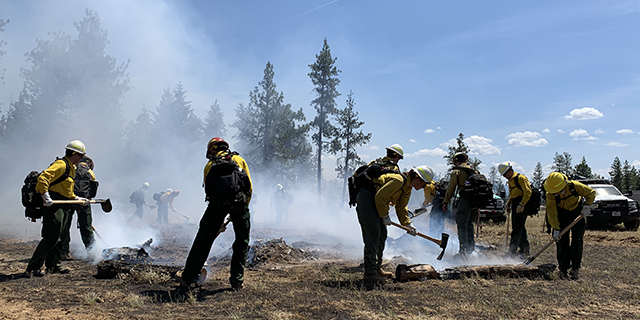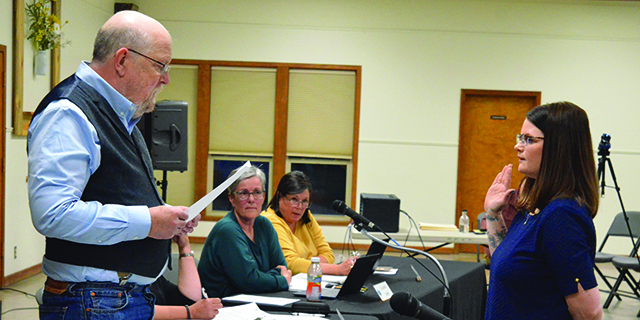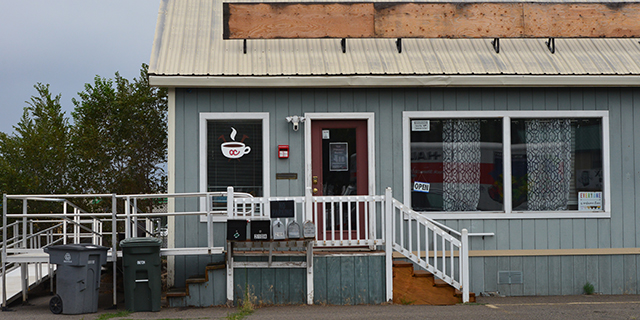MC Ranch tour showcases sustainable forestry
Published 4:47 pm Friday, July 1, 2011

- The MC Ranch crew loads tree limbs into a chipper during an equipment demonstration last Thursday. A tour of the property highlighted sustainable forestry practices at the historical ranch owned by 2010 Oregon Tree Farmer of the Year Harry Merlo. BILL RAUTENSTRAUCH / The Observer
Harry Merlo threw a party last Thursday, inviting about 300 people to help him celebrate the success of his MC Ranch.
Merlo, former CEO of Louisiana Pacific Corp, founder of the World
Forestry Institute and winner of the Oregon Tree Farm System’s 2010 Tree
Farmer of the Year Award, told the crowd that the ranch isn’t a big
money-maker.
But money, he said, isn’t what it’s all about.
“The cash flow around here hasn’t been that good but the value has gone up by millions,” he said at a stop during a tour around the 12,000-acre spread. “What I care about is that it’s a better place for my grandchildren, the community, all the people who come along later. There’s no estimate in my mind on how much that is worth.”
Few people argue with the statement that the Merlo Corp. Ranch, along Oregon Highway 244 southwest of La Grande, sets an example for sustainable forestry. But it wasn’t always like that.
When Merlo first leased the property from an industrial owner a decade ago, it had more than a century of hard agricultural and industrial use behind it and showed many signs of not-so-conscientious forestry practices.
During a bus tour Thursday, Ranch Manager Rex Christianson told how Merlo leased the property in 1996, purchased the land in 2000 and the timber in 2002. From the start, Merlo and his team meant to improve conditions.
Christianson and a crew including two full-time and one part-time worker, plus a couple of high school students in season, have focused efforts on turning the ranch into a healthy, diversified operation, with an accent on smart forest management.
“Our biggest issue is trying to get this back to sustainable on the timber end,” Christianson said.
About five years ago, Merlo started a program of selective harvesting to remove dead and insect-damaged trees. Much of the timber taken down was chipped into biomass for facilities including the Enterprise School District’s boiler.
Besides biomass production, sustainable practices introduced and still in use at the ranch include the mulching of debris left at contract logging sites.
When trees are harvested, their tops are fed into a chipper for the biomass, and the limbs and other debris are turned into mulch and spread over the ground. The mulch cuts forest fire danger, and helps with reforestation.
Christianson said the ranch is doing more than a fair job of raising up new trees.
“We’re getting about an 85 percent survival rate,” he said.
The MC includes 8,500 timbered acres and plenty of open pasture for cattle. According to Christianson, about 300 pairs of cows graze on the property.
Christianson said wildlife thrives as well. For one thing, he estimated the presence of about 450 resident elk, a number well up from the time Merlo first took over the property.
Thursday’s tour took people along dirt roads past historical features including tall spring board-notched stumps that hark back to the days when loggers harvested trees with axes and cross-cut saws. Spring boards were mounted as platforms for the men to stand on.
The history of mining on the property isn’t well-defined, but it is known that mining of some kind took place generations ago. There is a hand-dug mining ditch on the ranch, and also some tailings.
As another point of historical interest, tour guides talked about giant Western larch trees on the property. Even though the ranch was extensively logged in the past, many old-growth larch trees remain.
The tour, which included stops for equipment demonstrations, followed a road up Yee Haw Hill, an obstacle that has posed problems for logging crews.
During one recent winter, logging was halted because of icy conditions on the hill. Since then, the road has been reconstructed, with the grade reduced. Now it is passable to trucks and equipment throughout the year.
Thursday’s event, which included a catered chuck-wagon-style meal at the end, was held mainly to celebrate Merlo’s 2010 award. It also called attention to his efforts to further forestry education.
With his lifetime of experience in the logging industry, Merlo is the founder of the World Forestry Institute, a component of the World Forestry Center in Portland.
The institute supports the exchange of forestry information across international lines. At its heart is a fellowship program that brings young forestry and forest products professionals from around the world to Portland. They work at the institute for periods of six to 12 months.
Tours of the MC Ranch are regular occurrences for WFI fellows. About a dozen, from countries including Australia, Nigeria and China, came to the MC Ranch event last week.
Rick Wagner of the Oregon Department of Forestry praised Merlo for the role he plays in forestry education.
“This is not only a working ranch, but a living classroom,” Wagner said.
Prior to winning the statewide award, the Union County Chamber of Commerce named Merlo the 2010 Union County Tree Farmer of the Year.





